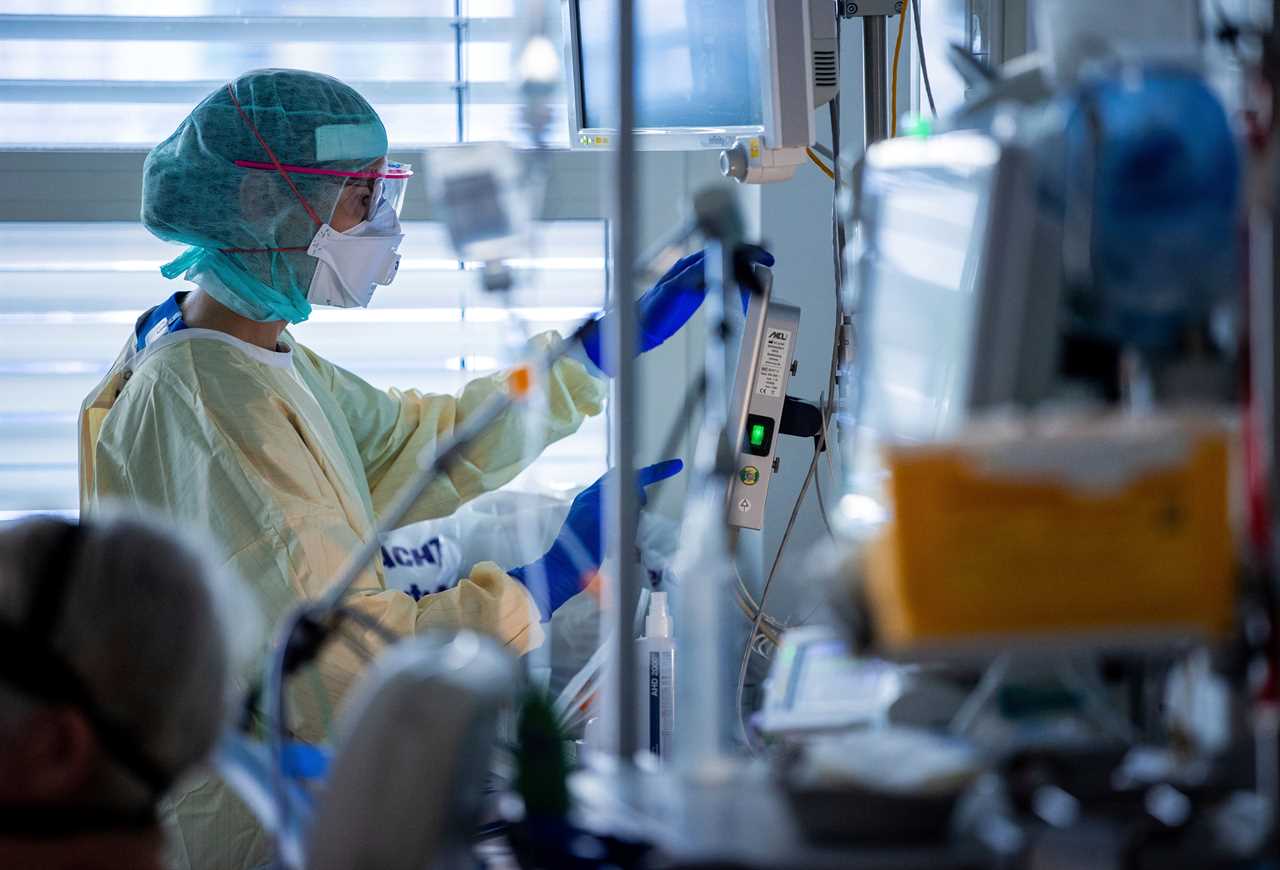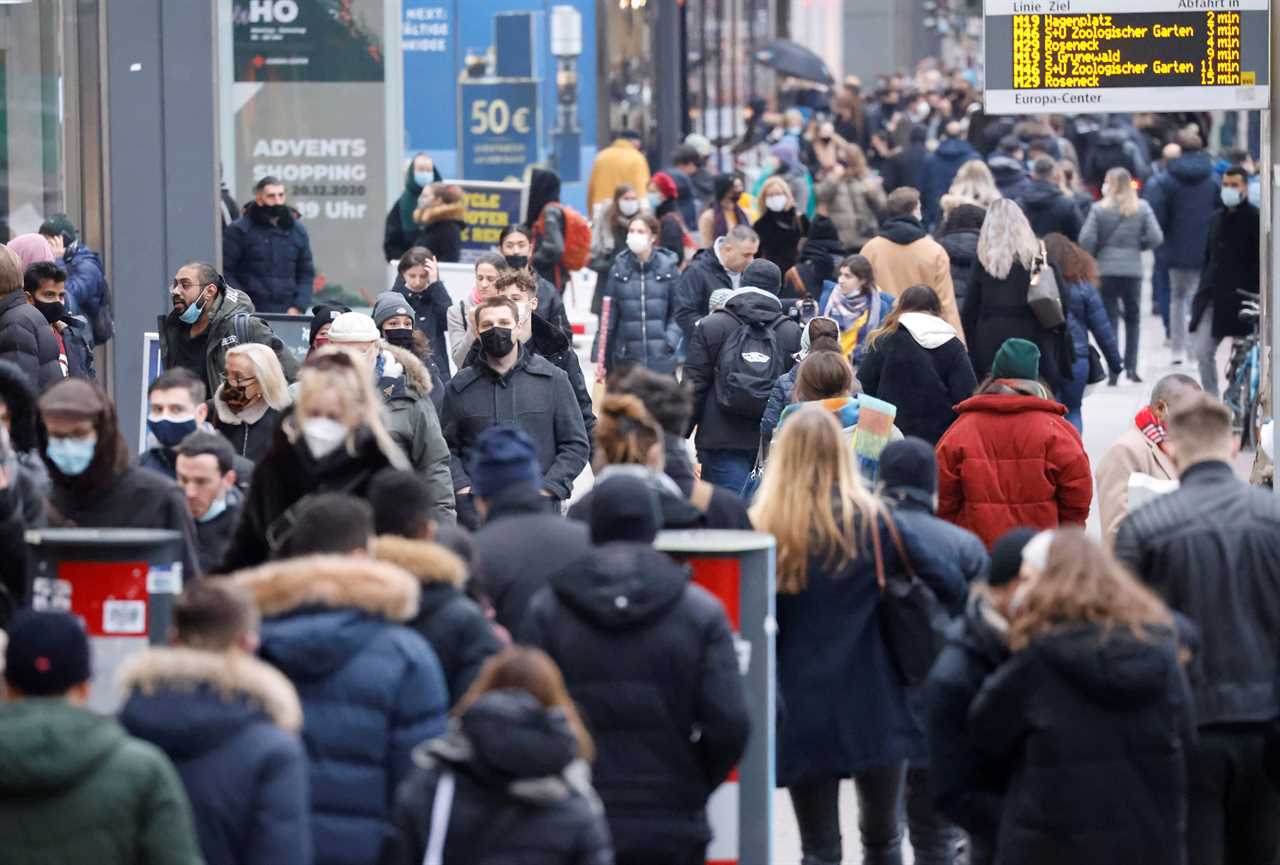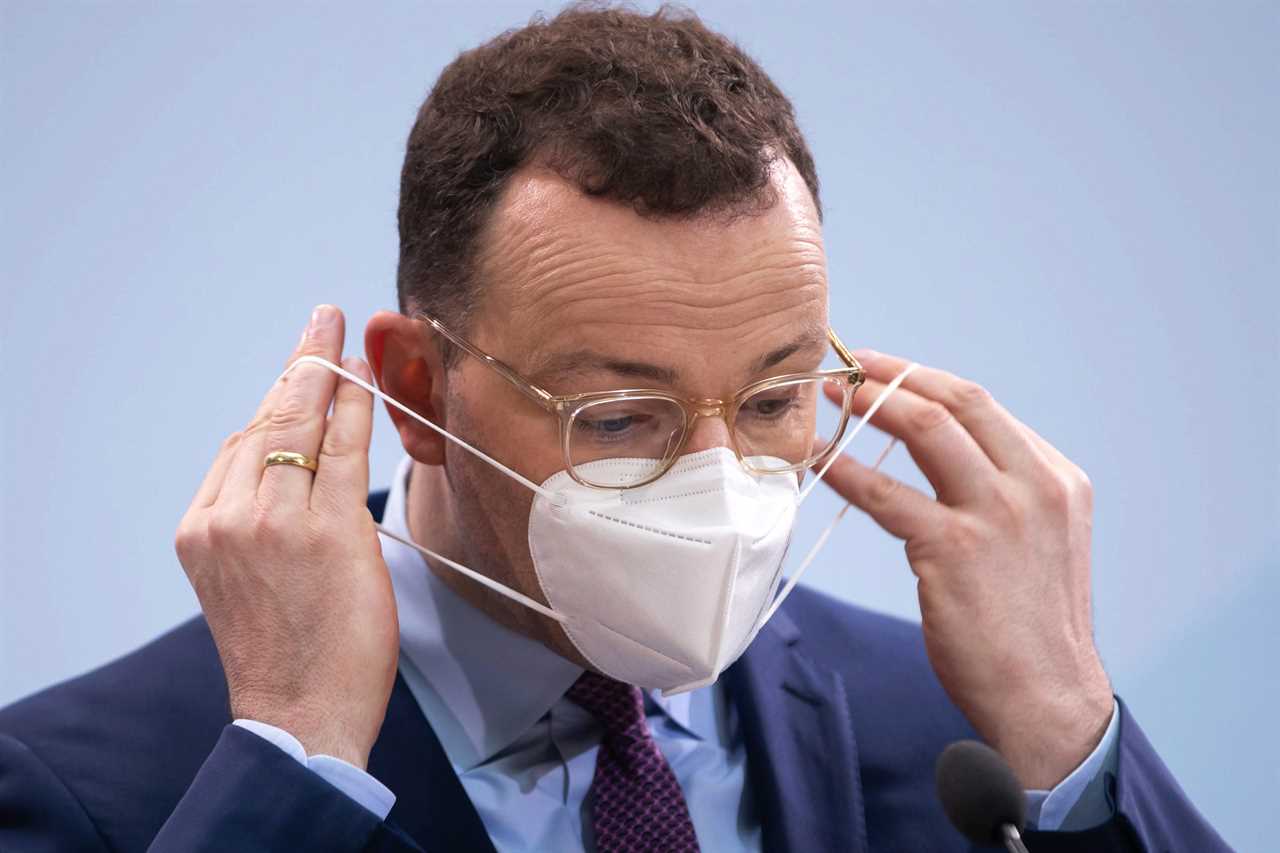GERMANY is set to be plunged into a new “blitz lockdown” before Christmas as the country’s Covid deaths hit their highest ever levels.
Health bosses said tens of thousands of lives could be lost and hospitals overwhelmed if a lockdown was imposed after the Christmas holiday.
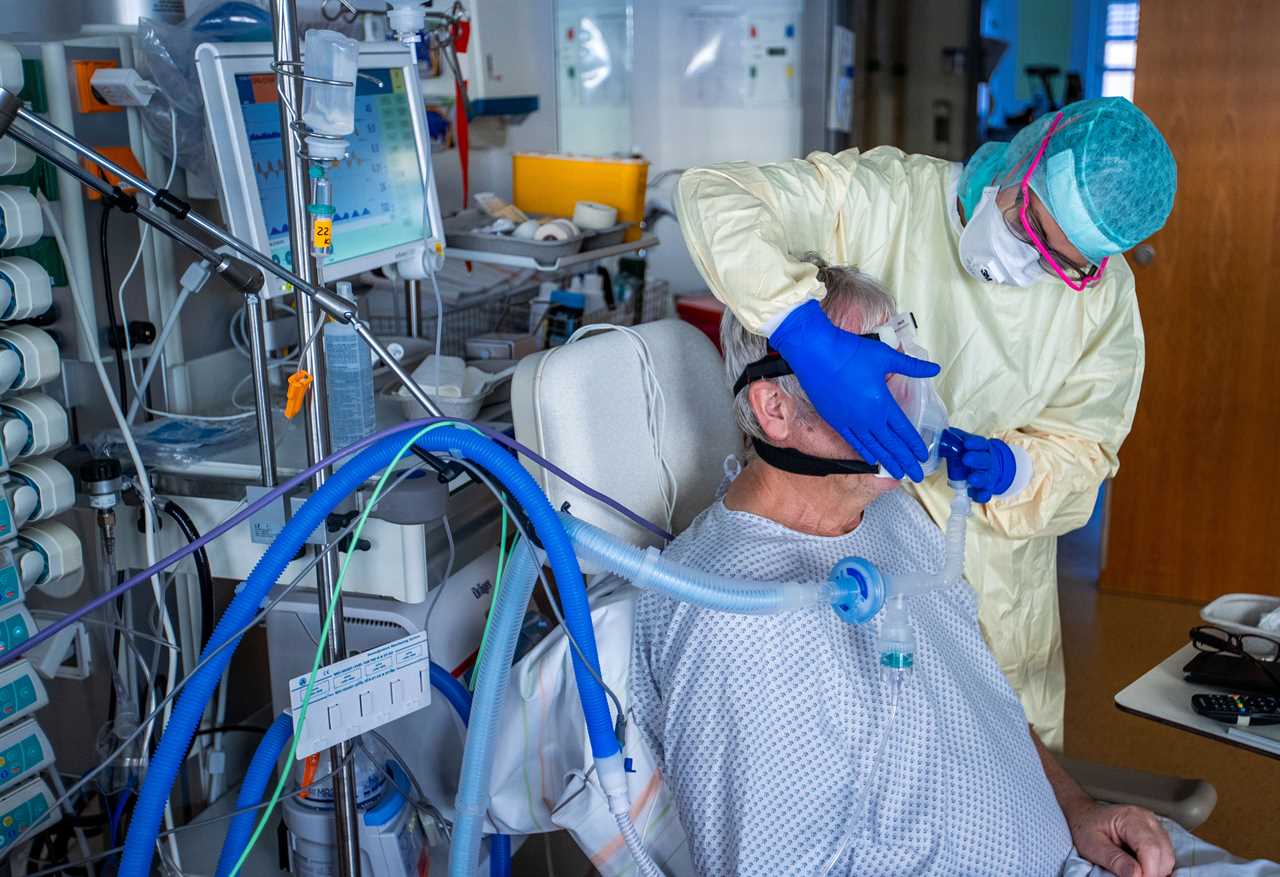
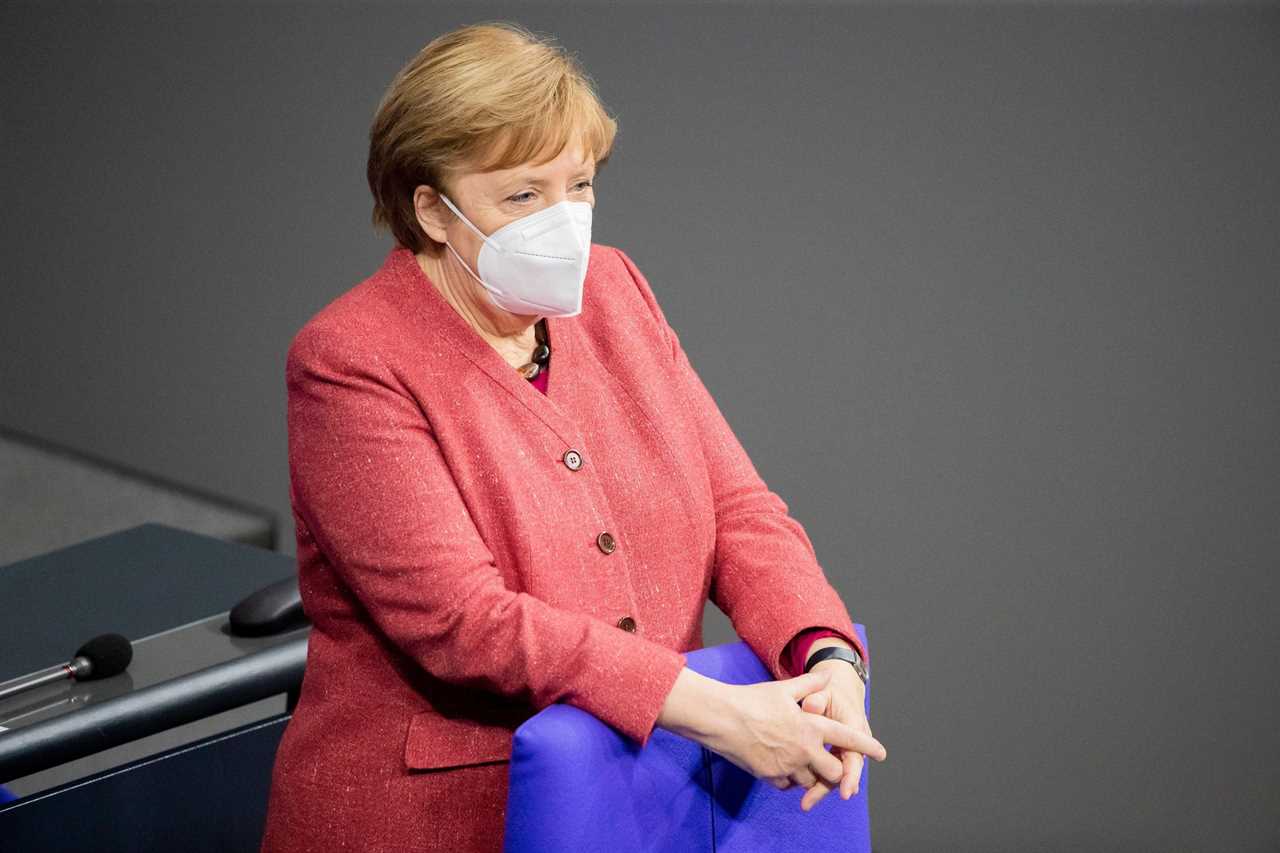
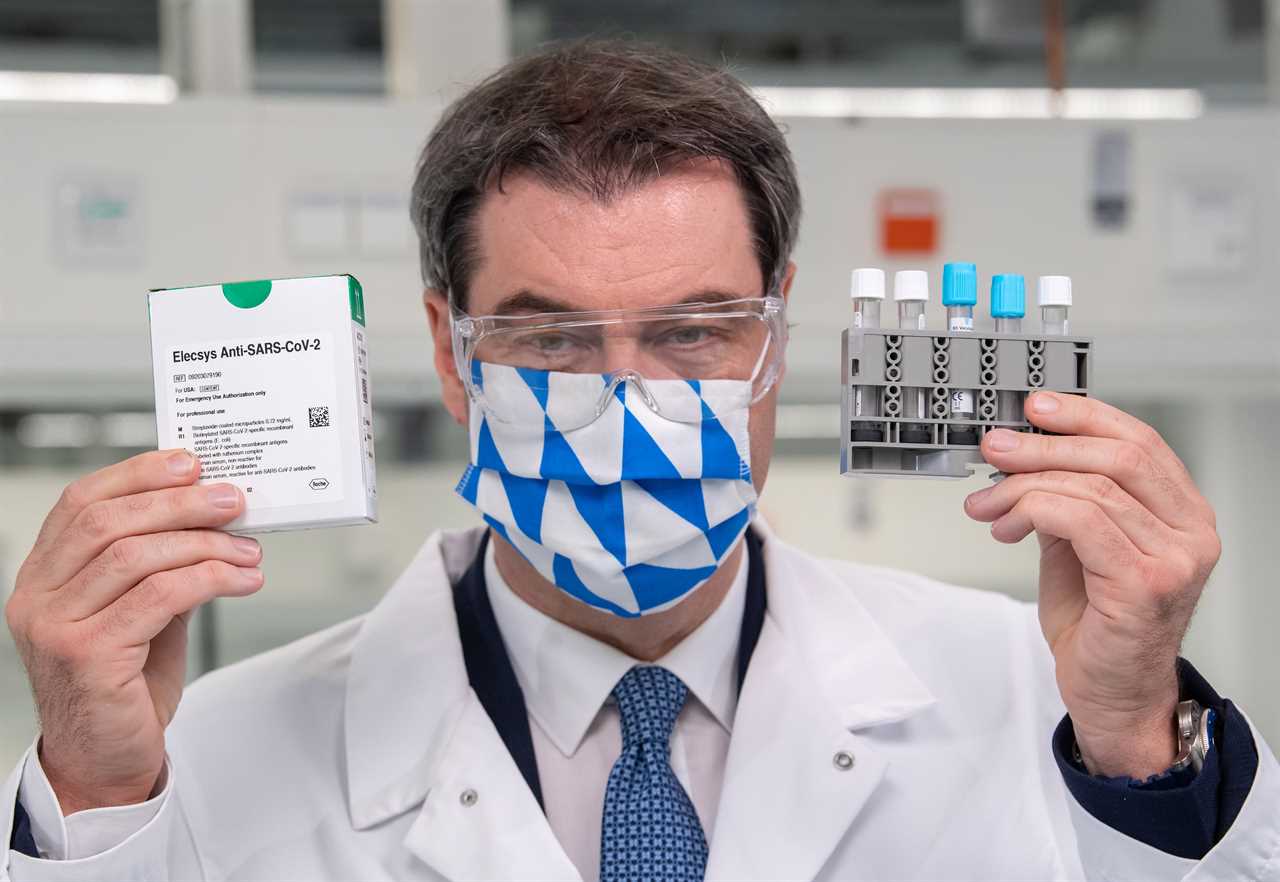
On Wednesday Germany recorded almost 23,000 new coronavirus cases and 598 deaths from the virus, both rates being at their highest since the pandemic started.
Leading politicians called on the government to act immediately and introduce what some local media outlets called a “blitz lockdown”.
The leader of the southern state of Bavaria Markus Soder said in a Twitter message: “We have to act as soon as possible.”
“Why hesitate, when we know that it’s necessary? Which is why we need to push everything forward and act decisively. We need to wind everything down before Christmas.”
Soder called for a national approach to the crisis which should include curfews, the closure of non-essential shops and an extension of school and kindergarten holidays.
Germany was put under a “soft lockdown” on November 2 which tightened the rules on gatherings and bars and restaurant were shut, but shops and schools were allowed to remain open.
Those rules were expected to be relaxed from December 23 until January 1 with up to 10 individuals, not including children under the age of 14, allowed for a private gathering.
People had been discouraged from making nonessential journeys but had not been banned from travelling.
Germans were also urged to quarantine for a week before any celebrations, particularly if they involved elderly people.
Those rules are now widely expected to be dropped this weekend.
Health Minister Jens Spahn said: “It’s clear that we need additional measures, and rather sooner than later.
“We cannot allow this to be a festival for the virus. The virus doesn’t care whether or not we’ve bought our Christmas presents.”
He added: “The ‘us’ has to be more important than the ‘I’, and that means making a sacrifice.”
The federal government and the 16 leaders of the individual states are set to meet on Sunday to work out the next set of Covid measures, with some heads urging the government to act even quicker.
Daniel Günther, head of the northern state of Schleswig-Holstein, said it was “irresponsible to wait another day”.
He added Germany faced “an unbelievably difficult time until Easter”.
Berlin’s mayor Michael Muller said on Thursday he wanted shops in the capital to shut and for the city to work with the neighbouring Brandenburg, but a decision is not expected until Tuesday.
Addressing the state parliament, he said: “How many deaths is a candlelit dinner worth? … How many deaths is a shopping spree worth?”
He said a lockdown was needed to be introduced before Christmas in order to save lives.
The Interior Minister Horst Seehofer said it would be a mistake to wait until after Christmas to introduce tighter restrictions.
He told Der Spiegel: “The only chance for us to take control of the situation again is a lockdown that kicks in immediately.”
Otherwise, he added, Germany would have to tackle an exponential rise in cases over the coming months.
He said Germany had “thrown away” the progress it had made during the early months of the pandemic, saying that had been caused by “insufficient measures taken’ rather than a lack of discipline by Germans.
Chancellor Angela Merkel on Wednesday made a passionate plea for people to stay home over Christmas, saying they risked not seeing their grandparents again.
Merkel has repeatedly called for a nationwide approach to tackling the Covid-19 virus but many of the decisions have been made by individual states which critics have said is ad hoc and confusing.
The German Society of Surgeons has warned of the consequences of overburdened hospitals on non-coronavirus patients.
Some 4,000 intensive care beds in Germany are occupied with Covid patients, a third more than at the highest point of the pandemic during the country’s first wave.
Prof Thomas Schmitz-Rixen, vice-president of the German Society for Surgeons, told the broadcaster Deutschlandfunk: “The situation in the hospitals is getting increasingly tense.”
